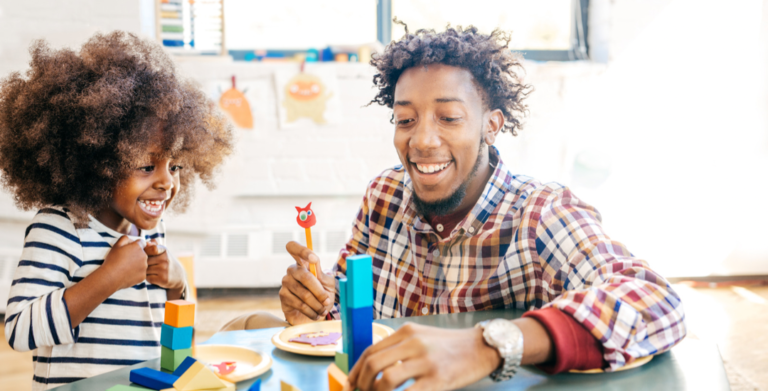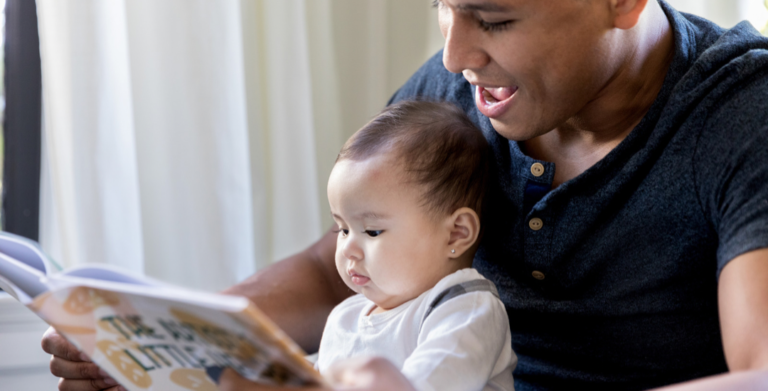Vidyut Joshi
When I quit my Silicon Valley job to become a full-time mother, many questioned my decision. But today when I see my 15-year-old daughter navigating her life effortlessly, I feel I did the right thing. She is a smart, independent teenager, and I am proud of her.
Today’s ecosystem puts constant demands on our children to keep juggling multiple things. When I see these kids bogged down with schoolwork, then rushing to attend coaching classes – all while clearly having forgotten what it is like to be a child or a teenager – I feel concerned. Are we getting this right? Why are our children (and often parents) under so much pressure? I do get the challenges of a hyper-competitive world, but my sense based on my own experience is that there is a better way of dealing with this – focusing on brain development in the child’s first 5 years.
I for one have tried doing this very diligently, and I do believe our family is reaping the fruits of this early start now. So here is sharing my story in the hope that if you happen to be parents to a new-born, this helps make your life much easier in the years to come.
The Story Begins
As a soon-to-be new mom, my list of to-dos was endless – making our home baby-ready, shopping for clothes, diapers, toys, books, leave from work, arranging for my mother’s travel from India (Mommies to the rescue always!). Whilst in the fifth month of pregnancy and already overwhelmed with the list, when someone gifted me a set of books on early education, my first reaction was far from that of excitement. However, I did start reading a few pages, and before I knew it, I was hooked. By the time I finished them all, I had had a major paradigm shift in my thinking.
The idea that my actions in my child’s early years could actually have a profound impact on its IQ and EQ was irresistible, and I was determined to try it. This is when my list of to-dos got its most prized item – preparing materials for my baby’s learning activities. So, in the final trimester of pregnancy, when one should be pampering oneself with food and being fussy about likes and dislikes, my husband and I got busy creating learning materials for our baby.
Ask me about it – We would spend hours researching on the internet, going to libraries, collecting magazines, newspapers, books, calendars – we did everything we could to add to our baby’s learning collection. Then we would sit and collate, photocopy, draw, write, cut, laminate, and develop these materials to be in the right shape and form for the baby.
Not Everyone was Amused
The reactions of friends and family were mixed. While some loved the idea and joined us in the journey (with their own babies), others felt it was unnecessary and a waste of time. Many of our elders felt we didn’t need to start education so early (“Why don’t you let nature take its course – the baby will do just great. Didn’t we all turn out okay?!”), while some others objected to my working so hard on this at a time when I should be getting rest. They had their doubts as to whether this was actually going to work.
And the Day Arrived
When my dear daughter was born – a beautiful bundle of happiness! She was a pretty and healthy baby, and both she and I settled in fairly quickly. I like to believe she was used to my voice already, as I had been speaking to her since even before I saw her.
My hospital bag, believe it or not, already had a few sets of early education materials that we had prepared, which I began to use from the very first day! I read books to her and sang songs from memory (I think her favourite was, “Archibald bald bald, King of the Jews, Bought his wife a pair of shoes….”). I spoke with her almost the whole time she was awake – about anything and everything around us – and even introduced her to the doctors, nurses, family, and visiting friends.
This communication routine that I started in the hospital went on for several months; and when we ran out of materials we had created, we supplemented them with digital materials. I had also managed to establish a small community of like-minded parents, so we could continue exchanging and sharing our materials and ideas with each other over the next few years.
Oh, What Joy!
I would create booklets out of family events or festivals, and read them out to her. I let her paint and draw on the walls in our home (including pictures where the trees were coloured blue and the sky was a bright green!). Even a pigeon laying eggs by our window became a closely observed and journaled event in our family.
A walk with her grandmother was an event too, for she got to meet and learn about so many new people, and look at objects in nature, hear sounds, see colours, feel the mud, balance on the footpath edges… The lunchtime stories and bedtime book readings by grandpa were yet another highlight of her day.
My daughter was practically lapping up all of it and was enjoying this whole journey. I would fall short of places to take her to – we had raided libraries, bookstores, concerts, zoos, museums, parks, and a thousand other places. I would always look for what more I could offer her. Amazingly, she began to walk at around 10 months of age, and began speaking in full sentences a few months before she turned two. Our house was akin to an artist’s studio – a space for creating things and having fun while at it.
Our Conviction Begins to Pay Off
Wanting to constantly learn new things had before long become my daughter’s nature. She was open to learning practically anything. The hypothesis we drew was that this can happen only when a child embraces this wonderful thing called curiosity. Curiosity, we realised, was now an inseparable part of her. Others noticed how she was much more aware than others, with people specially mentioning it on various occasions. Even in mundane places like the supermarket, they would remark as to how ‘aware’ she was (“Look at her eyes – did she really understand what we said?!”).
We of course were only happy, silent witnesses to the whole process.
Again, honestly, the idea is not to put out my two-year old as a role model, but to only share our experience in the humble hope that parents feel empowered and appreciate the wonders of early learning in this demanding environment.
Today my daughter is a happy teenager, a voracious reader, is adept at sports, loves movies, is fond of food, and is a great fan of the American Ninja Warrior. She looks up to Elon Musk, JK Rowling, and Bear Grylls, among others. She has developed multiple skills, and displays a natural flair for whatever she sets out to do.
To some, her academic journey may seem boringly ‘eventless’; however, when one considers this a journey of a bright kid cruising from peak to peak effortlessly, they must understand ‘effortless’ does not necessarily mean ‘eventless’. A child who is immersed in schoolwork from 7am to 5:30pm ends by exclaiming, “What a fantastic concept Quantum Energy is”! She then goes out for a physically demanding volleyball session but comes home with the sweaty satisfaction of having had a gripping match. What else does one make of this?!
So What Have I Learnt?
Today, my daughter and I share a high over fascinating Math concepts. We dissect cinematic plots together and admire the creativity behind them. We share stories of books that we each liked. And sometimes we argue over the connection between Vedanta and science fiction.
Of course, she still has a long personal and professional journey ahead of her, but what makes me happy is that she is setting up herself independently. She will continue to grow like every child does and will keep learning.
I know in my heart that she is well equipped to undertake what we call ‘Life’, and that she will make the most of it!
So for all they are worth, here are a few takeaways from my journey so far:
- Know that you can make a huge difference to your child. Investing in their first 5 years is the best gift you could ever give them.
- Commit to spending a lot of time with your child in the first five years of their life. Make a routine you can follow.
- Within the time that you spend, plan to pack quality in terms of developmental opportunities you offer – be it intellectual or emotional.
- Read and research. The Internet is a treasure trove of meaningful, valuable tools and materials.
- If you do not have the time to read and research, take professional help. When chosen well, they can beautifully supplement your own efforts as a parent.
- When you work with your children in their early years, you basically make them better learners for life. This saves them (and you) from the dreaded drudgery of school and college.
- Rightly goes the old adage – If you give someone a fish, you feed them for a day. If you teach someone how to fish, you feed them for a lifetime.
Lastly, it is likely a subtle question arose in your mind as you read this – does all this not burden the baby??
Quite the opposite, in fact. A baby takes to learning quite naturally as a basic survival skill, which explains why babies tend to pick up and speak languages spoken around them so fluently (before even learning the grammar)!
The way I see it, what would be burdensome would be to suddenly one day impose upon them the expectations and challenges of the ‘real world’; whereas initiating them early to, and preparing them for, a life meant to be primarily about joyful learning, is perhaps the biggest favour we could do them.







